#OTD in May 1970 the US Commission on Civil Rights issued Clearinghouse Publication #90 entitled Stranger in One’s Land. This government report analyzed the findings of the 1968 San Antonio USCCR hearings and called the Texas Rangers “symbols of oppression.”
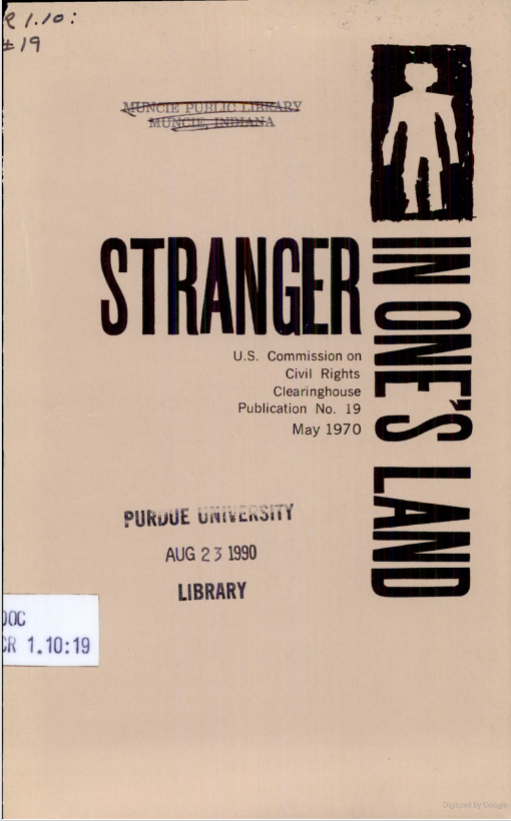
The USCCR had called a series of hearings in San Antonio to gather data on the civil rights concerns of the Mexican-origin community in the Southwest. In addition to the hearings a cadre of researchers travelled the Southwest 6 months prior. They interviewed 1,000 people from all walks of life.
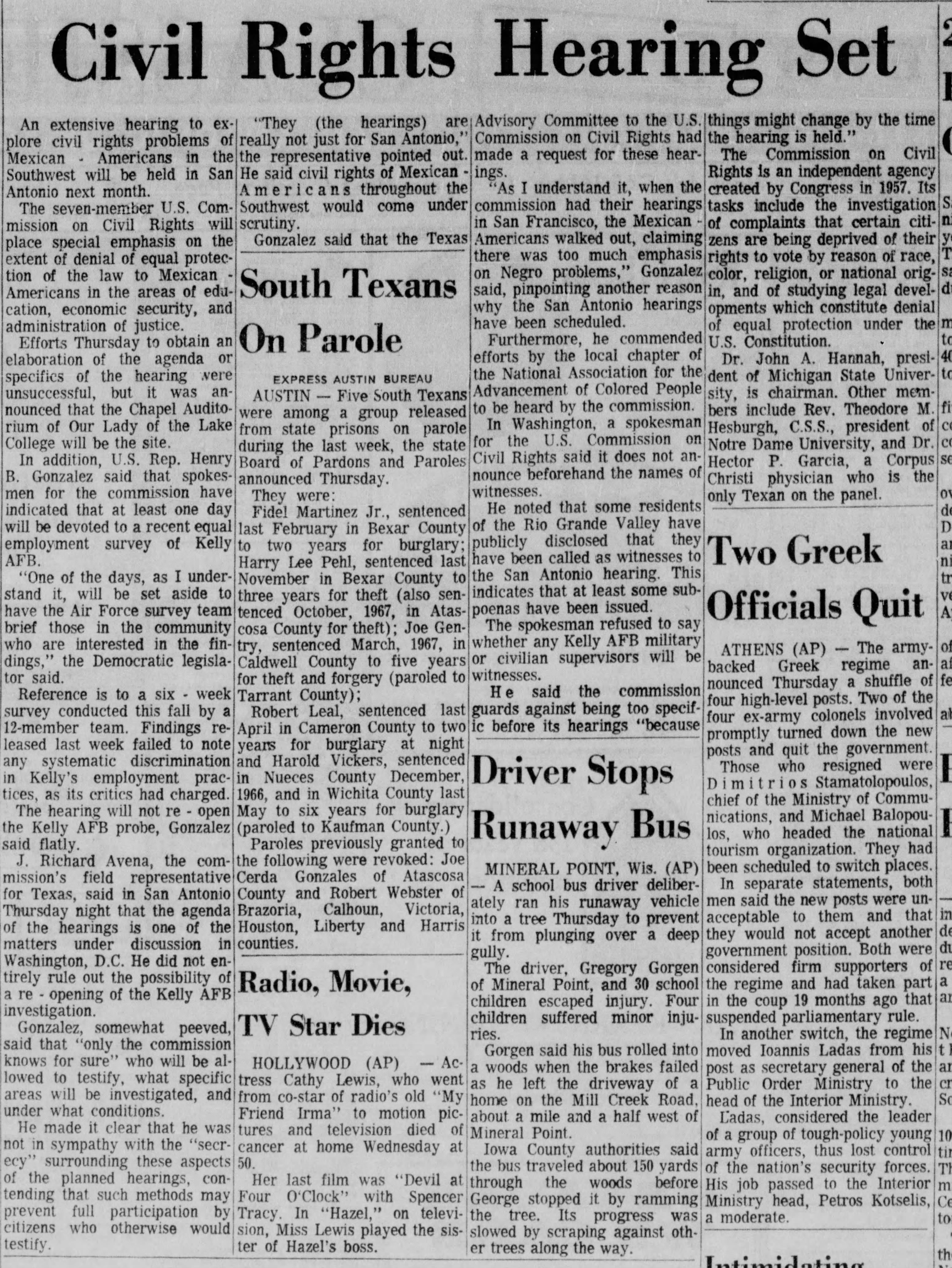
The report was also important because LA Times journalist Ruben Salazar wrote its contents. LA County Sheriffs later killed Salazar during the 1972 Chicano Antiwar protest. In addition to Salazar’s fine writing, the report also has wonderful renderings from an unnamed artist.
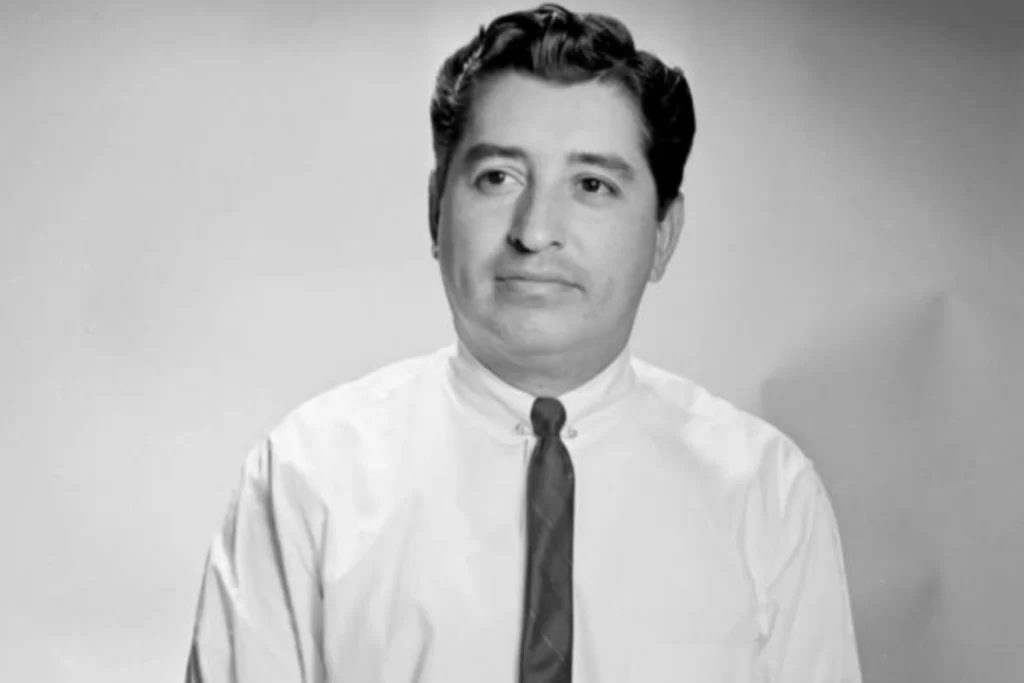
The report’s 6 chapters all focus on themes important to the Mexican/Mexican American community. For ex, Ch. 2, “La Frontera” examines border issues while Ch. 4, La Educación de Mexicanos explores inequities in schools. The Rangers enter the picture in Ch. 6, La Ley (the law).
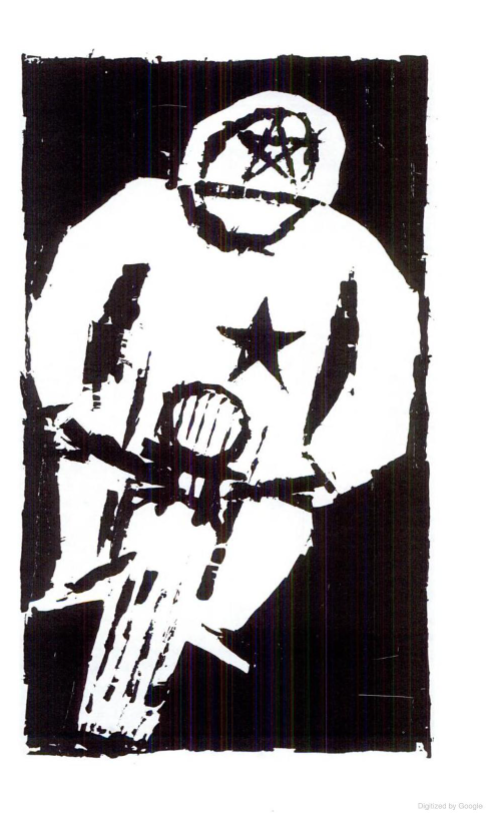
La Ley focused on policing issues across the Southwest, but since the hearings were in Texas, the Rangers received a lot of attention. The report and hearings focused attention on Ranger abuse of striking workers and civil rights activists especially.

Farmworker Reynaldo de la Cruz gave voice to Ranger abuse of labor activists. He noted honestly “many people hate them, many people are afraid….they are afraid of being hit, or being pushed around….this is the feeling of people in the Valley. They are afraid.”

The Ranger de la Cruz and others identified as particularly problematic was A.Y. Allee. He had brutalized Rev. Ed Krueger, a Catholic priest who frequently monitored labor protests, and his wife. Kreuger also discussed how Allee beat and arrested farmworker Magdaleno Dimas.
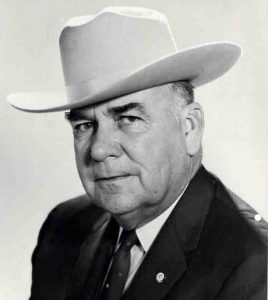
Allee would go on to have numerous encounters with Dimas. In the most sadistic incident he, other Rangers, and police officers brutally beat Dimas and several others mexicanos after arresting them on trumped up charges in June 1967. This will be the subject of a future thread.

While Allee had been subpoenaed to several congressional hearings in Texas in the mid 1960s, he failed to attend. He did show up for the meeting in San Antonio. It was fairly embarrassing for him. For example, Allee claimed the Rangers had a good reputation among Mexican people.

Stranger in One’s Land is an important document. While it gave light to many issues in the Mexican American community, its focus on the Rangers was particularly well done. In fact, all the hearing had to do was let Allee speak, and he told on himself and the Rangers.
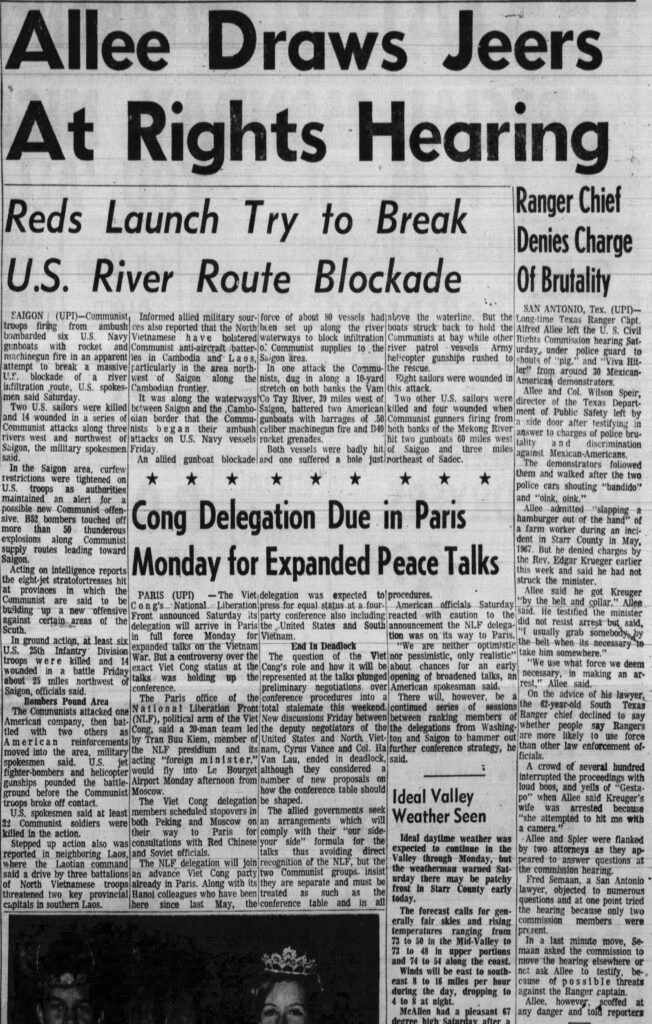
This thread is a part of the #OTD in Ranger history campaign that @Refusing2Forget is running this year. Follow this twitter handle or https://refusingtoforget.org/ranger-bicentennial-project/, and visit our website https://refusingtoforget.org to learn more.
Refusing to Forget members are @ccarmonawriter @carmona2208 @acerift @soniahistoria @BenjaminHJohns1 @LeahLochoa @MonicaMnzMtz and @Alacranita, another co-founder is @GonzalesT956
@emmpask @sdcroll @HistoryBrian @LorienTinuviel @hangryhistorian, @ddsanchez432, @elprofeml, and @littlejohnjeff are other scholars working on this project.

